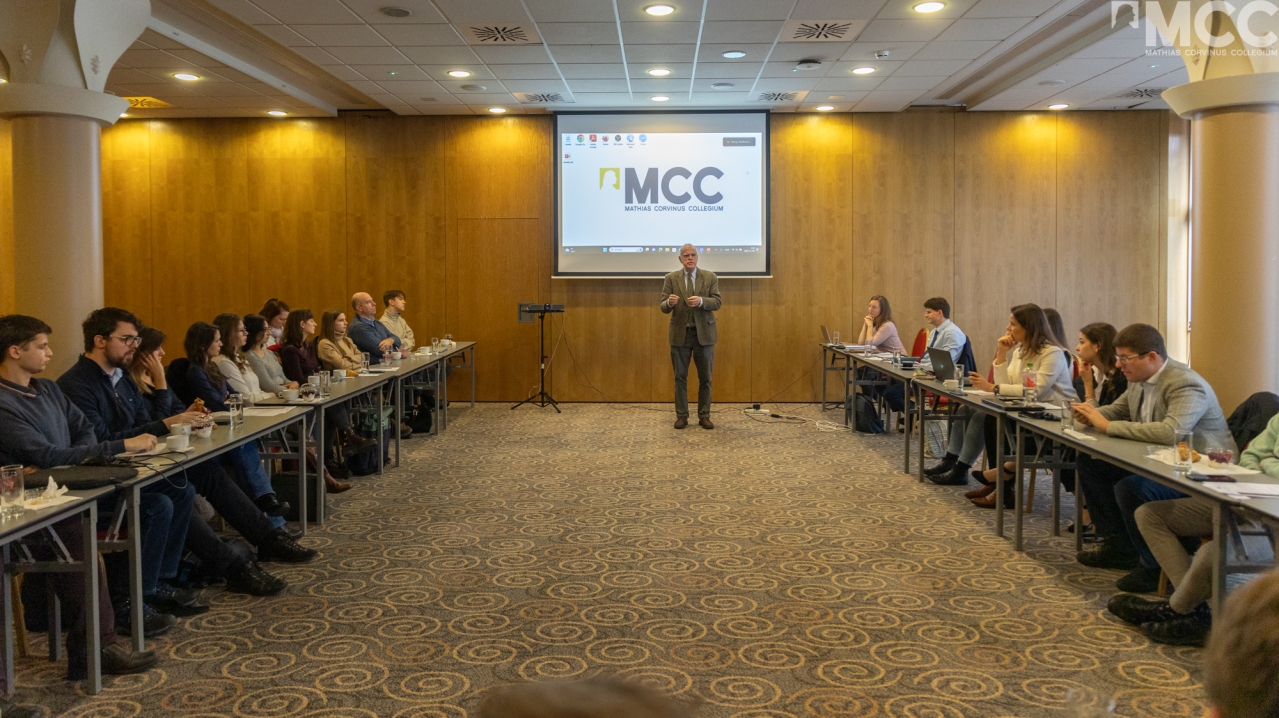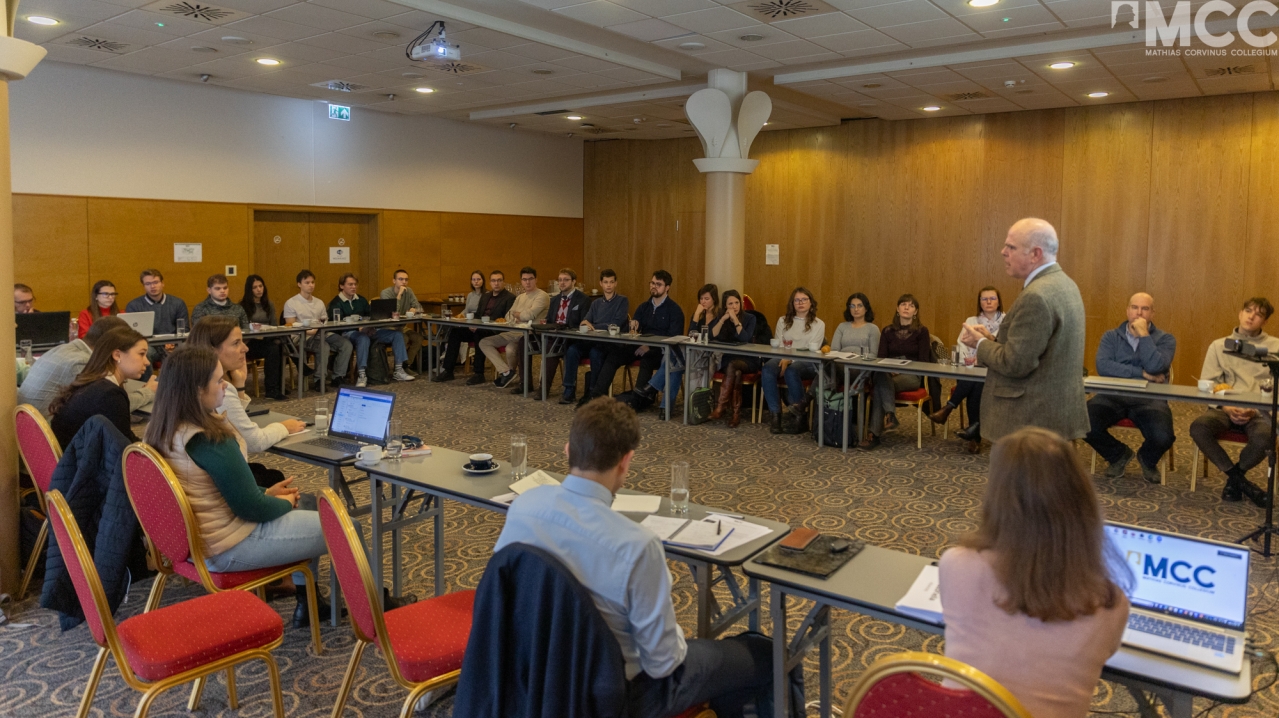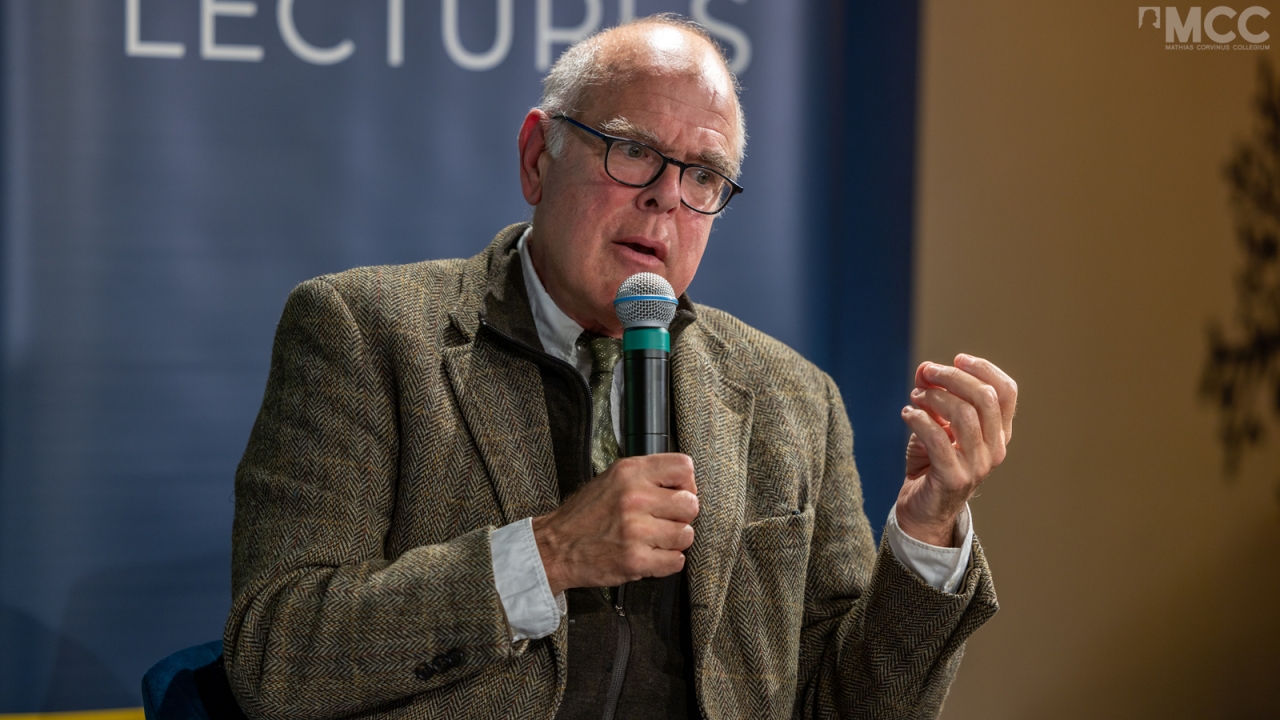Reading time: 2 minutes
Christianity is what holds European peoples and the European civilization together, and without its protection there can be little hope for a solid basis for a European future – Christopher Caldwell, writer, journalist, and senior fellow at the Claremont Institute pointed out in the latest event of the MCC Budapest Lecture series sharing his thoughts on the past and current situations of Europe as well as on the future challenges of the European cooperation.
The MCC had the privilege to host Christopher Caldwell, the world-renowned writer and journalist who participated in several academic programs of MCC to share his insights on journalism, academic writing as well as on the experiences of his own career path and its challenges. In addition to the academic programs, Christipher Caldwell, who has been researching and writing about European questions for several decades, shed light on the past and current challenges of the institutuionalized European cooperation in the framework of the Budapest Lectures series. The discussion, which took place in a full house, was moderated by Lénárd Sándor, Head of the Center for International Law.
The Budapest Lectures first recalled the historical path of the European integration following World War II as well as the historical perspective and opportunity presented by the collapse of the Soviet Union and the reunification of Europe. However, Europe was only able to use this historic opportunity for her own benefit to a limited extent. In the age of an emerging great power rivalry, Europe is lagging behind, proving to be weak economically, militarily and demographically. At the same time, not only external threats, but also the bond of Christianity, which had always served as a cohesive force in the past, is weakening, and this is what makes the “old continent” vulnerable.
Christopher Caldwell explained the centralization efforts of the European integration in light of American historical parallels, and also talked about the crack between the “old” Europe that is before the Eastward enlargement and the “new” Europe that are the countries of the Eastward enlargement. The outbreak and escalation of the Russian-Ukrainian war as well as its impacts were also discussed by highlighting that the European cooperation, unlike the great powers, is unable to recognize its interests and write its own story in this chapter of history. Christopher Caldwell also pointed out that the biggest challenge Europe is facing with is immigration along with the ability to protect and transmit its own culture.









